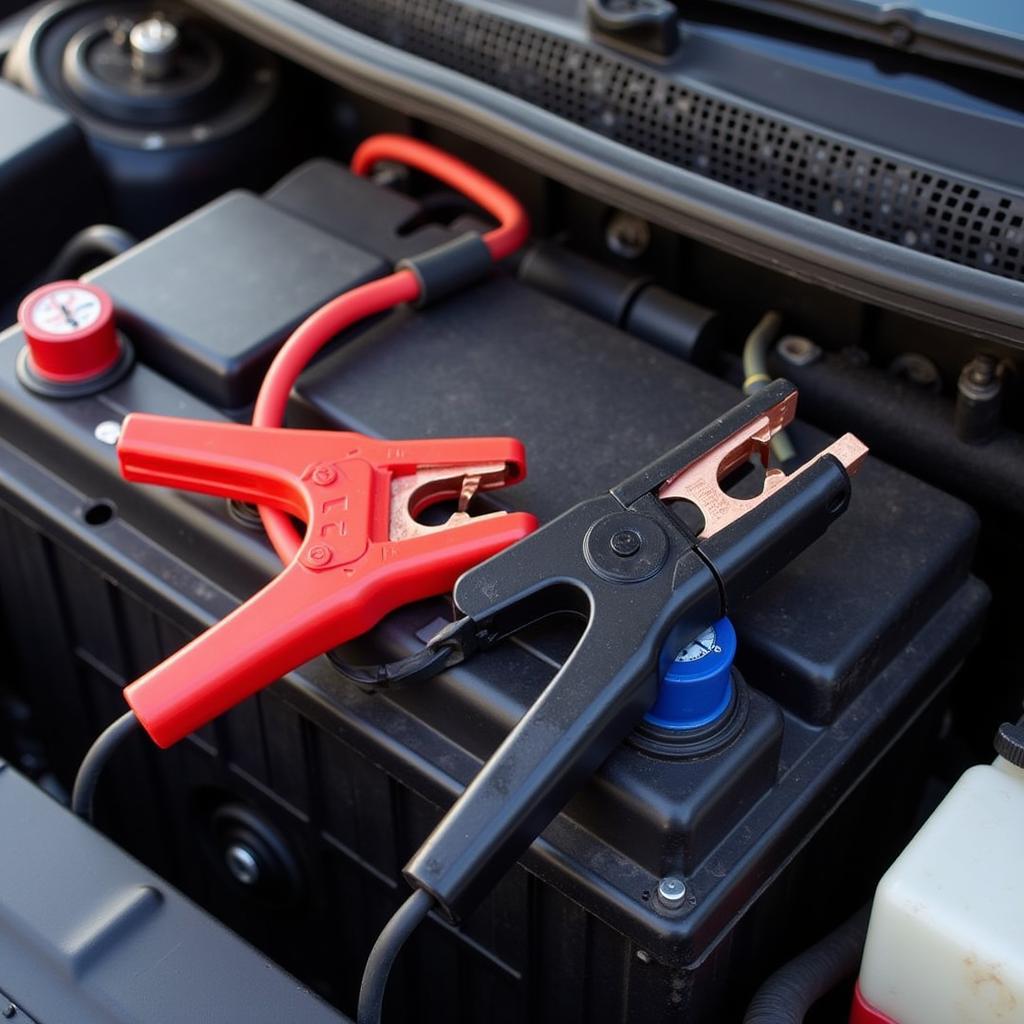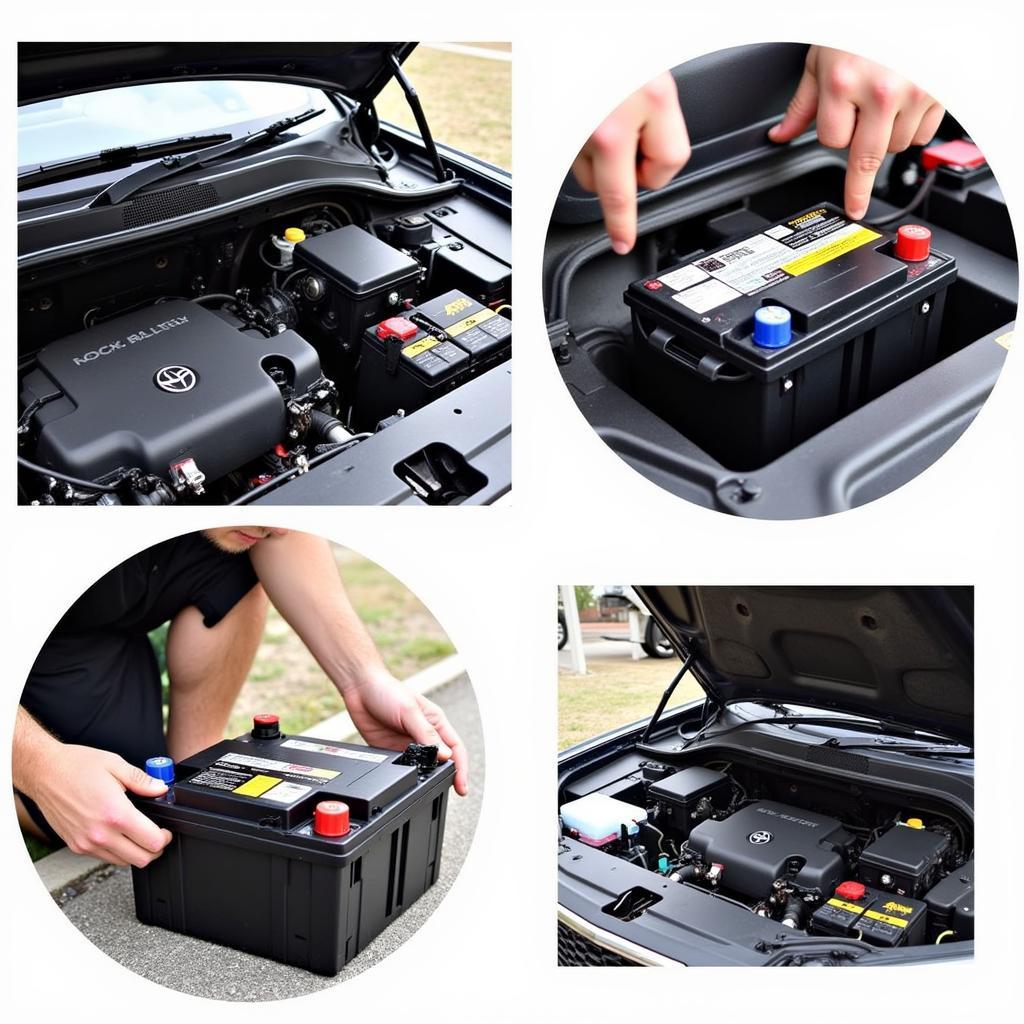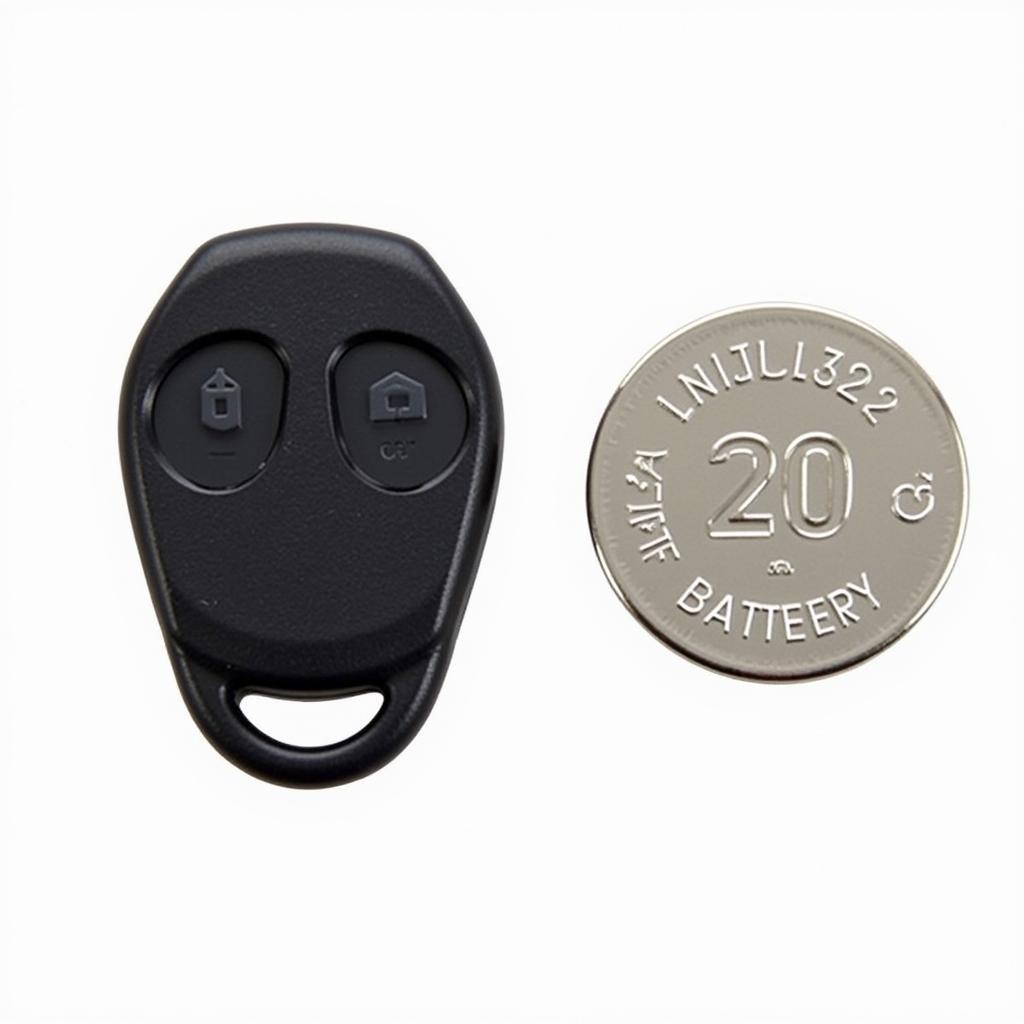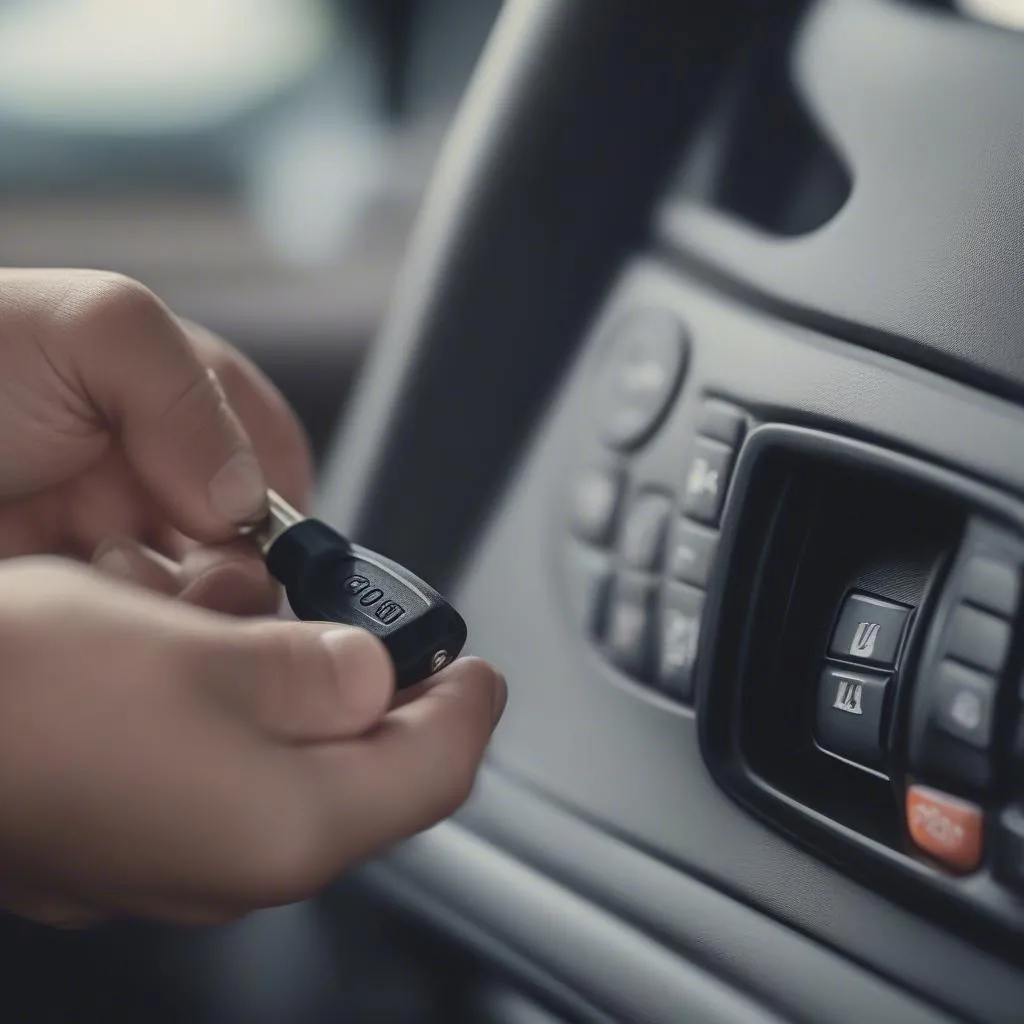A dead car battery is a frustrating experience, leaving you stranded and wondering what went wrong. Understanding the reasons a car battery dies can help you prevent future issues and keep your car running smoothly. This guide delves into the common culprits behind a dead battery, offering solutions and preventative measures.
 Dead Car Battery with Jumper Cables
Dead Car Battery with Jumper Cables
Common Reasons a Car Battery Dies
Several factors can contribute to a car battery dying. Some are simple oversights, while others indicate more serious underlying issues. Let’s explore some of the most common reasons:
- Leaving lights on: This is a classic mistake. Leaving headlights, interior lights, or even the glove box light on can drain your battery overnight.
- Extreme temperatures: Both extreme heat and cold can negatively impact battery performance. Hot weather can accelerate the chemical reactions within the battery, leading to faster degradation. Cold weather can thicken the battery fluid, making it harder for the battery to produce power.
- Old age: Car batteries have a limited lifespan, typically between three and five years. As a battery ages, its internal components degrade, reducing its ability to hold a charge. If your flat car battery is more than a few years old, it might simply be time for a replacement.
- Parasitic drain: Even when your car is off, certain electrical components, like the clock or radio, continue to draw a small amount of power. A faulty component or wiring issue can cause excessive parasitic drain, leading to a dead battery. This is especially problematic if your car battery went dead overnight.
- Short trips: Short trips don’t give the alternator enough time to fully recharge the battery after starting the engine. Repeated short trips can gradually drain the battery over time.
- Corroded terminals: Corrosion on the battery terminals can disrupt the flow of electricity, preventing the battery from charging properly and eventually leading to a dead battery.
- Faulty alternator: The alternator is responsible for recharging the battery while the engine is running. A faulty alternator won’t recharge the battery, eventually leading to it dying. If your car not starting after boost, a faulty alternator might be the culprit.
How to Troubleshoot a Dead Car Battery
Jump Starting Your Car
If your car battery is completely dead, jump-starting it is often the first step. You’ll need jumper cables and another vehicle with a working battery.
- Connect the positive (red) clamp to the positive terminal of the dead battery.
- Connect the other positive (red) clamp to the positive terminal of the good battery.
- Connect the negative (black) clamp to the negative terminal of the good battery.
- Connect the other negative (black) clamp to a metal ground on the car with the dead battery (away from the battery itself).
- Start the car with the good battery, let it run for a few minutes, then try starting the car with the dead battery.
If you find that your car battery wont jump, it could signify a deeper issue with your electrical system. Don’t hesitate to seek professional assistance.
Testing Your Battery and Alternator
After jump-starting your car, it’s crucial to test both the battery and alternator to determine the root cause of the problem. A simple voltage test can reveal whether the battery is holding a charge and the alternator is functioning correctly. Many auto parts stores offer free battery and alternator testing.
Preventing a Dead Car Battery
- Regularly clean the battery terminals: Remove any corrosion with a wire brush and a mixture of baking soda and water.
- Limit short trips: Try to combine errands or take longer routes to give the alternator sufficient time to recharge the battery.
- Turn off all lights and accessories: Double-check that all lights and accessories are off before exiting your vehicle.
- Have your battery tested regularly: A professional can assess the health of your battery and identify potential problems before they leave you stranded.
 New Car Battery Installation
New Car Battery Installation
“Regular maintenance is key to preventing a dead battery,” advises John Smith, a certified automotive technician with over 20 years of experience. “Simple steps like cleaning the terminals and having your battery tested can save you a lot of headaches down the road.”
“Remember, extreme temperatures can significantly impact battery life,” adds Jane Doe, an electrical engineer specializing in automotive systems. “Be extra vigilant about battery maintenance during periods of extreme heat or cold.”
In conclusion, understanding the reasons a car battery dies empowers you to take preventative measures and avoid inconvenient breakdowns. By following the tips and advice in this guide, you can keep your car battery healthy and ensure reliable starting power for years to come. Remember to address any underlying issues promptly and seek professional assistance when needed. Don’t let a dead battery ruin your day – take control and stay prepared! If you’re experiencing frequent battery issues, it’s wise to review the reasons your car battery dies.


